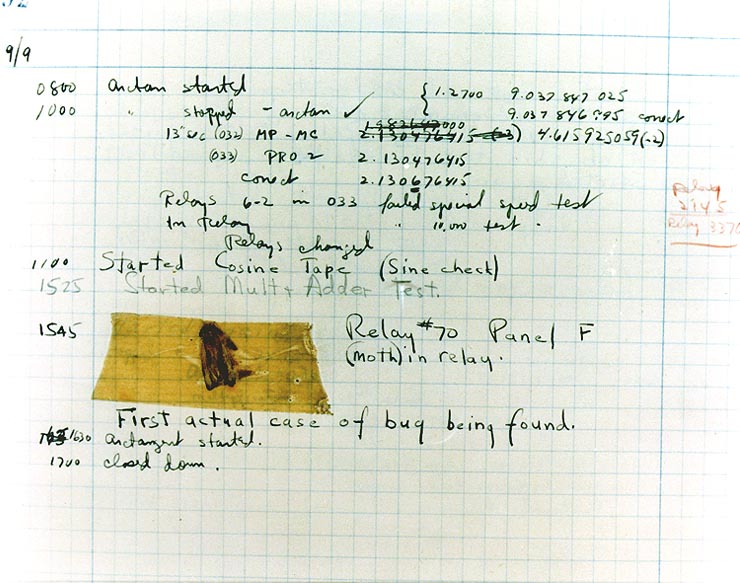Jumping ships
At some point in your career, you will not be happy with just a job, you’ll be looking for something which will keep you interested and will sharpen your skills. Lately, I’ve been looking for something new to do. Since I got burned last time I’ve jumped ships I decided it is the time to prepare a list of the interview questions for my potential employer.

First of all please be warned that I don’t really have a lot of experience in looking for the job. Usually it was other way around. Everything I’m describing below are my experiences, ideas, and thoughts so if you decide to use anything from this post you are on your own ;)
Before the interview.
Get to know a little about the company. Check out their glassdoor profile. Note that if a company is not strictly IT opinions might be written by people with different kind of the problems but look for the red flags like poor management, etc. Visit company’s LinkedIn profile, there is a chance that you might know somebody who is working or worked there. Ask your colleagues about the company. You might be surprised how much you can learn about your potential employer during watercooler talk. Those first-hand experiences should be very strong points in your decision-making process.
During the interview
First of all, you should be polite enough to let them know that you’ll need some time at the end to ask questions. Pay attention to what they are asking. If they ask you to solve the problem it might be the sign that they’ve faced it already. If they are asking about some technologies there is a chance they are using it, etc. But sometimes they’ll ask questions just because they’ve found them somewhere on the internet. When you are suspicious ask why they are probing this particular topic and what it has to do with actual work they do in there. With a bit of luck you might be able to avoid this uncomfortable topic and steer discusion somewhere else ;)

The questions
What are the worst things you have to face in your day to day work which you can not change? Who can made the decision to change things around here?
If they can name many of those things without thinking then something might not be right. Try to get as much information as possible. The purpose is to figure out the bad stuff that you’ll have to deal with. If they can not change it, you might not be able to change it (at least for some time). They might not be so eager to speak about the day to day issues to the stranger and will just mention it and quickly move on. Pay attention to what they are saying and ask about details if you think something is not right.
What are the things that irritate you and you can actually change? What have you done to change those things?
A long list of issues without the process in progress nor plan to fix them should put you on your toes. It’s the sign that you should be extra cautious. If everything is peachy and there is nothing to fix it’s even more disturbing. There is always something to improve and when a person responsible enough to decide if you should be hired doesn’t know what should be fixed then something is not right.
If you could just say a magic word and change 3 things in the company what would you change? What should stay as it is?
Alternative to the previous ones. Maybe they will be able to open a bit more during wishful thinking :)

Who’s calling the shots? How does decision process look like? With who can you discuss your doubts about the feature/bugfix and the system in general?
If all the decisions are made overseas or on the moon then maybe they are looking for skilled typewriter who will carry out the will of the management? On the other hand, when details are discussed and planned with the team then maybe they are actually looking for someone with a broader skill set. Note that foreign management isn’t always bad it’s about figuring out how the process looks like and what to expect. It is important to know what you are getting yourself into and that you might be forced to write stupid code just to meet those requirements.

How does bugfix process look like? From the moment it is found to the production deployment? How does urgent bugfix process look like? How often you release major bugs to the production?
With a few additional questions you might figure out how well/bad the team is organized. Who is deciding what should be done, who is assigning the work? How real development process looks like. What about testing? Is there code review in place? Is there CI/CD configured? How is it deployed? This one might turn into a long conversation. If they have major bug on production every second day then they are either super agile or super lazy.
How do you test your application? What tools do you use? How many features/bugfixes have you written last week? How many tests have you written for that stuff?
Unit tests? Integration tests? Load test? Manual tests? The more tests they have the less stressful the job will be. Do you use the test-first approach or do the tests at the end? What happens if any of the testing stages fails? Maybe all you’ll hear are some buzzwords without a real process behind? If they do produce the code but do not test it then consider yourself warned.
Why do you want to hire someone new? How many people stay on board for a bit longer?
A big rotation of people is usually a bad sign and indicator of something deeply broken. If people come and go then there is probably something wrong and you’ll leave sooner than later. Try to clarify why they have so many dropouts.

What books have you read recently? What interesting conferences you’ve attended to or watched?
It is good to have inspiration. If they do not read and are not interested in what’s going on in the business then maybe they are there to do their job and nothing more. It’s hard to work with someone who just doesn’t care.
What is the hardware you are working on? Do you think it is sufficient to do the work comfortably?
16GB of ram, latest CPUs and fast SSD and they are still complaining about slow laptops? Then probably there is something wrong with the system. Ask how long does it take to setup the system on your local machine. How long does it take to start it? What additional tools you have to use during your day to day development?
What do you expect from me? What can I learn from you?
Do they need typewriter that will do the job? Even if they do there might be things you’ll be able to learn along the way? It’s all about expectations - what you expect should match what they can offer, this should keep both parties happy (for some time at least ;))
What are the chances that I’ll actually work with you?
There might be the chemistry during the interview but then when the day comes you’ll land in the suicide squad keeping the oldest system in the company from collapsing? Might not be as bad as it sounds but it’s all about the people and it is good to know in advance with who you’ll be working with.
The end
I hope that you’ll find some of those questions useful. If you have your own set of sanity checks please share them :)
19 Sep 2017 #other




